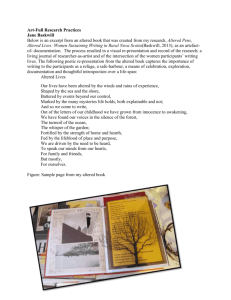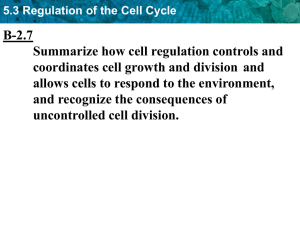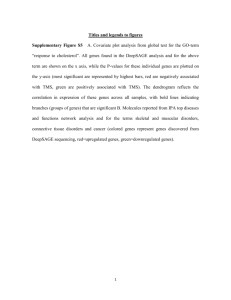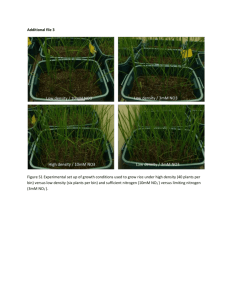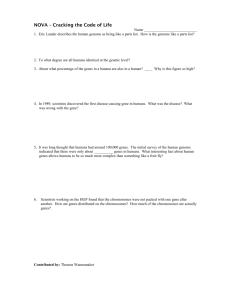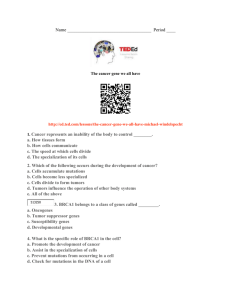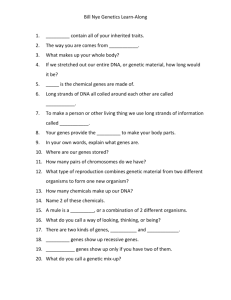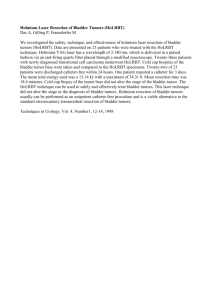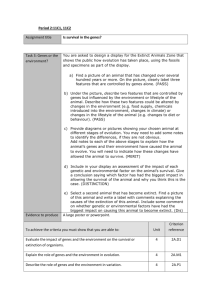read abstract - Trinity Washington University
advertisement
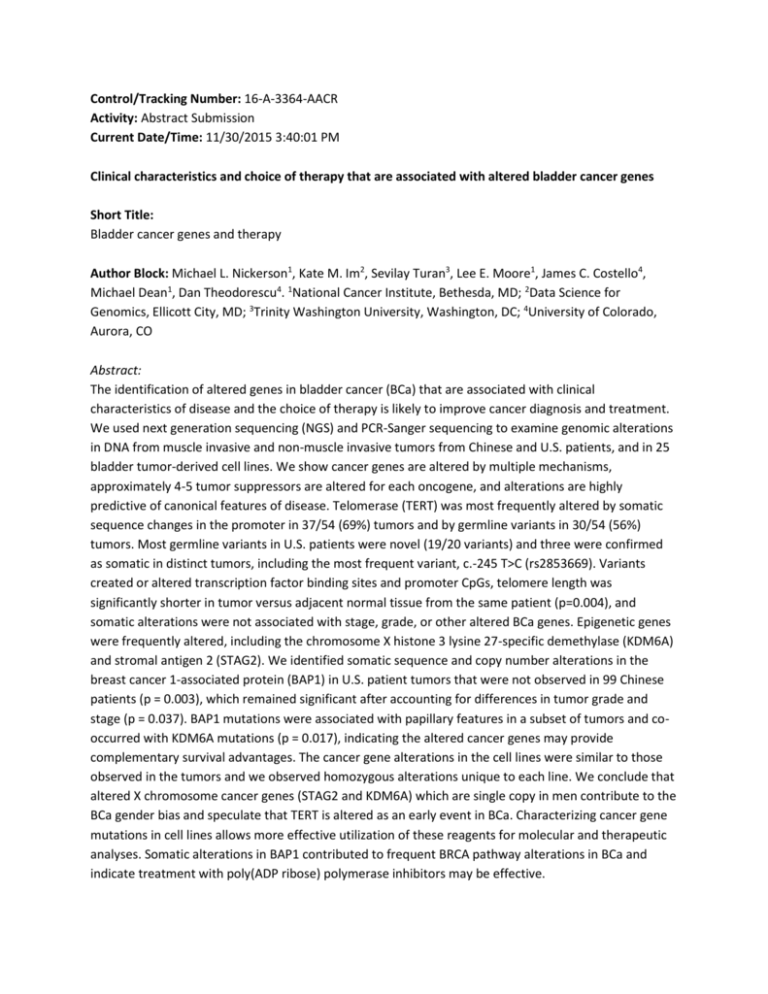
Control/Tracking Number: 16-A-3364-AACR Activity: Abstract Submission Current Date/Time: 11/30/2015 3:40:01 PM Clinical characteristics and choice of therapy that are associated with altered bladder cancer genes Short Title: Bladder cancer genes and therapy Author Block: Michael L. Nickerson1, Kate M. Im2, Sevilay Turan3, Lee E. Moore1, James C. Costello4, Michael Dean1, Dan Theodorescu4. 1National Cancer Institute, Bethesda, MD; 2Data Science for Genomics, Ellicott City, MD; 3Trinity Washington University, Washington, DC; 4University of Colorado, Aurora, CO Abstract: The identification of altered genes in bladder cancer (BCa) that are associated with clinical characteristics of disease and the choice of therapy is likely to improve cancer diagnosis and treatment. We used next generation sequencing (NGS) and PCR-Sanger sequencing to examine genomic alterations in DNA from muscle invasive and non-muscle invasive tumors from Chinese and U.S. patients, and in 25 bladder tumor-derived cell lines. We show cancer genes are altered by multiple mechanisms, approximately 4-5 tumor suppressors are altered for each oncogene, and alterations are highly predictive of canonical features of disease. Telomerase (TERT) was most frequently altered by somatic sequence changes in the promoter in 37/54 (69%) tumors and by germline variants in 30/54 (56%) tumors. Most germline variants in U.S. patients were novel (19/20 variants) and three were confirmed as somatic in distinct tumors, including the most frequent variant, c.-245 T>C (rs2853669). Variants created or altered transcription factor binding sites and promoter CpGs, telomere length was significantly shorter in tumor versus adjacent normal tissue from the same patient (p=0.004), and somatic alterations were not associated with stage, grade, or other altered BCa genes. Epigenetic genes were frequently altered, including the chromosome X histone 3 lysine 27-specific demethylase (KDM6A) and stromal antigen 2 (STAG2). We identified somatic sequence and copy number alterations in the breast cancer 1-associated protein (BAP1) in U.S. patient tumors that were not observed in 99 Chinese patients (p = 0.003), which remained significant after accounting for differences in tumor grade and stage (p = 0.037). BAP1 mutations were associated with papillary features in a subset of tumors and cooccurred with KDM6A mutations (p = 0.017), indicating the altered cancer genes may provide complementary survival advantages. The cancer gene alterations in the cell lines were similar to those observed in the tumors and we observed homozygous alterations unique to each line. We conclude that altered X chromosome cancer genes (STAG2 and KDM6A) which are single copy in men contribute to the BCa gender bias and speculate that TERT is altered as an early event in BCa. Characterizing cancer gene mutations in cell lines allows more effective utilization of these reagents for molecular and therapeutic analyses. Somatic alterations in BAP1 contributed to frequent BRCA pathway alterations in BCa and indicate treatment with poly(ADP ribose) polymerase inhibitors may be effective.
